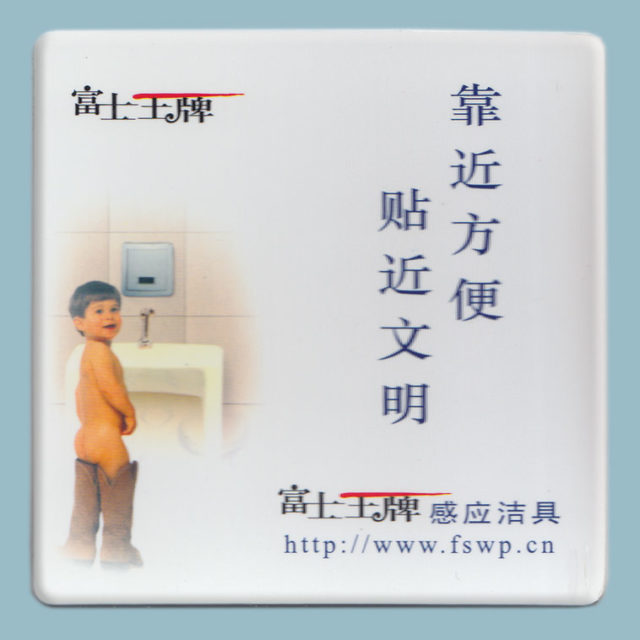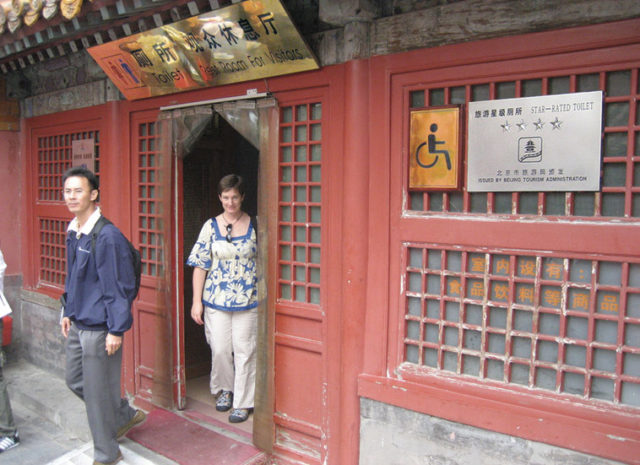
Sign in a men’s bathroom in Beijing: ‘Stand closer to the urinal, get closer to civilisation’.
Photo: Danwei
In the run up to the 2008 Beijing Olympics, one of the city’s most widely advertised projects was the construction and renovation of thousands of toilets and the introduction of a star rating system for public facilities. In 2012 and 2013, the state of the nation’s toilets continues to be associated with degrees of ‘civilisation’.
Jinan Open Toilet Alliance
A number of restaurants, department stores, hotels, and universities in Jinan, the capital city of Shandong province, formed an ‘Open Toilet Alliance’ in November 2012. Members undertook to make their toilets available to the public. According to media reports in April 2013, the city plans to expand the alliance to 1,000 members by the end of the year, as part of its bid to win recognition as a ‘National Civilised City’. The city government also boasts of innovations including ‘fragrant toilets’ equipped to filter out odours and automatically perfume the air. In April 2013, Jinan hosted a study tour of over 400 urban law enforcers from all over China focused on the city’s ‘advanced experience’.
Occupy Toilet Protest
Inspired by the worldwide Occupy protest movements, a group of female students in Guangzhou launched their own ‘occupy’ movement. Fed up with long queues for the ladies’, twenty women marched into a men’s public toilet carrying colorful placards calling for equal waiting times for both sexes. Local media reported that provincial officials in Guangzhou responded by agreeing to increase the number of women’s toilets by fifty percent. Similar moves have been made in other cities. In Shaanxi province, the government ordered that new toilet facilities provide more cubicles for women than men.
Renewed Standards for Toilets
In May 2012, the Beijing Municipal Commission of City Administration and Environment released a new set of standards governing public toilets in the city (toilet campaigns in the 1980s had set the previous targets). The new standards impose a maximum limit of two flies per public toilet, and set out rules regarding odour and general cleanliness. As part of the upgrade, the commission would provide free toilet paper. According to the commission’s estimate, this will cost the municipal government as much as eighteen million yuan per year.
In February 2013, the Ministry of Health released draft regulations governing public toilets. Media reports suggest that, if approved, the new regulations will be more strictly enforced than the ministry’s previous toilet ‘guidelines’. The draft document ranks public toilets into four classes, mainly based on odour. The draft also stipulates that the maximum fly-count for stand-alone public toilets is three per square metre. The public toilets inside other buildings are only permitted one fly each.



